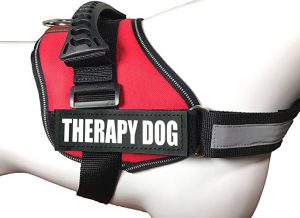 As the acceptance for the presence of dogs in more public areas grows, Massachusetts employers have likewise become more willing to permit dogs and other pets to come to work with their employees. And while State and local laws and regulations do impose some guidelines and restrictions in this area, the determination whether or not to allow dogs in a business depends mainly on its own internal policies. What follows are some rules and advice for Massachusetts businesses that allow or are considering allowing animals to come to work.
As the acceptance for the presence of dogs in more public areas grows, Massachusetts employers have likewise become more willing to permit dogs and other pets to come to work with their employees. And while State and local laws and regulations do impose some guidelines and restrictions in this area, the determination whether or not to allow dogs in a business depends mainly on its own internal policies. What follows are some rules and advice for Massachusetts businesses that allow or are considering allowing animals to come to work.
Food Establishments and the Health Codes
The Massachusetts Sanitary Code for “food establishments” is by far the most significant obstacle to allowing pets within a business. Put simply, live animals are not allowed on the premises of any food establishment, with limited exceptions (live seafood is naturally exempt, as are service animals discussed below). Food establishments in the code are defined broadly as operations that store, package, vend or otherwise provide food for human consumption. Restaurants and grocery stores are therefore largely off limits for dogs and pets in general. Sadly, these regulations have little likelihood of changing, since Massachusetts like most states has adopted them directly from the FDA itself.
Service Animals vs. Emotional Comfort Animals

What Is the Liability of Bringing a Dog to Work?
For owners, any dog-related incident at work would apply just as it would in any public place. This generally means that an owner will be responsible for any damage or injuries caused by his or her dog. For employers in Massachusetts, there are some exceptions to this rule since worker’s compensation coverage will usurp any private right of action by an employee for any injuries caused on the job. But members of the public would still be able to recover under those circumstances for injuries caused by any dog owner. Local leash laws, and penalties for non-compliance, should also be carefully considered for any place where the public is allowed.
Additional Considerations for Dog-Friendly Employers
 Perhaps more than actual laws and regulations, employers need to pay some attention to exactly how, when and why they want to allow pets in the workplace. An employee guidebook should describe the expectation that all employees maintain absolute control over their animals. Cleanliness and hygiene too should be strictly required, in order to ensure that other employees enjoy a safe and comfortable work environment. An employer should also be cognizant of informing new employees of a dog-friendly workplace policy, to avoid any conflicts from possible allergies or even a fear of certain animals. Likewise for any business that invites the public, it’s a good idea to create some signage displayed in prominent areas to inform visitors that dogs are allowed or present inside.
Perhaps more than actual laws and regulations, employers need to pay some attention to exactly how, when and why they want to allow pets in the workplace. An employee guidebook should describe the expectation that all employees maintain absolute control over their animals. Cleanliness and hygiene too should be strictly required, in order to ensure that other employees enjoy a safe and comfortable work environment. An employer should also be cognizant of informing new employees of a dog-friendly workplace policy, to avoid any conflicts from possible allergies or even a fear of certain animals. Likewise for any business that invites the public, it’s a good idea to create some signage displayed in prominent areas to inform visitors that dogs are allowed or present inside.
Beyond these basic considerations, a bring-your-dog-to-work policy can provide real benefits to all involved; the dog, the employee and the business itself. The dog no longer has to spend every day alone for hours on end; the employee gets more time with his or her best friend, and co-workers, along with customers and clients, can enjoy the benefit of added companionship too.



